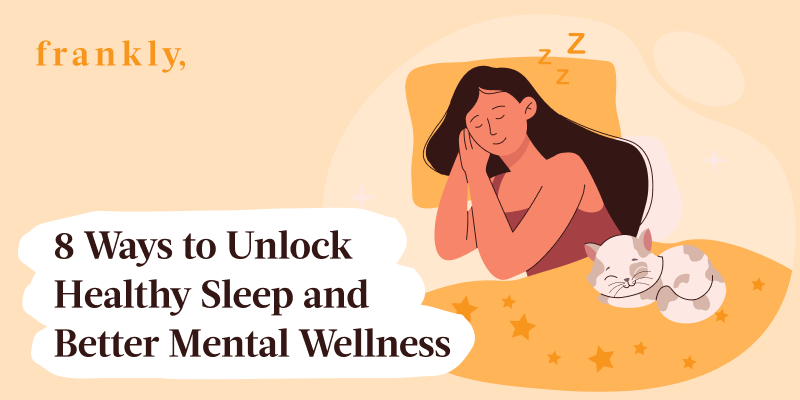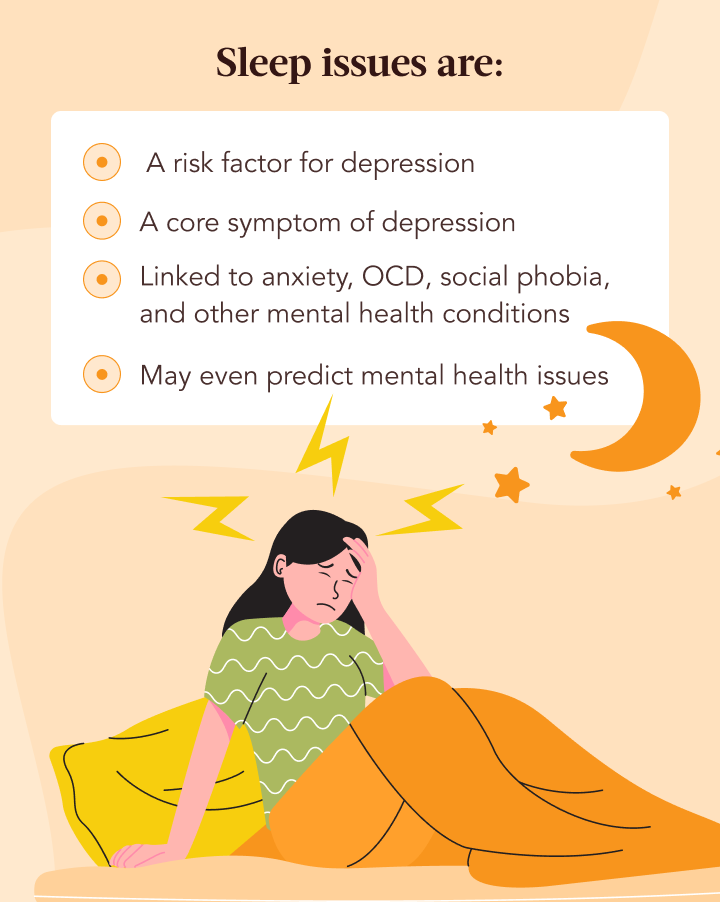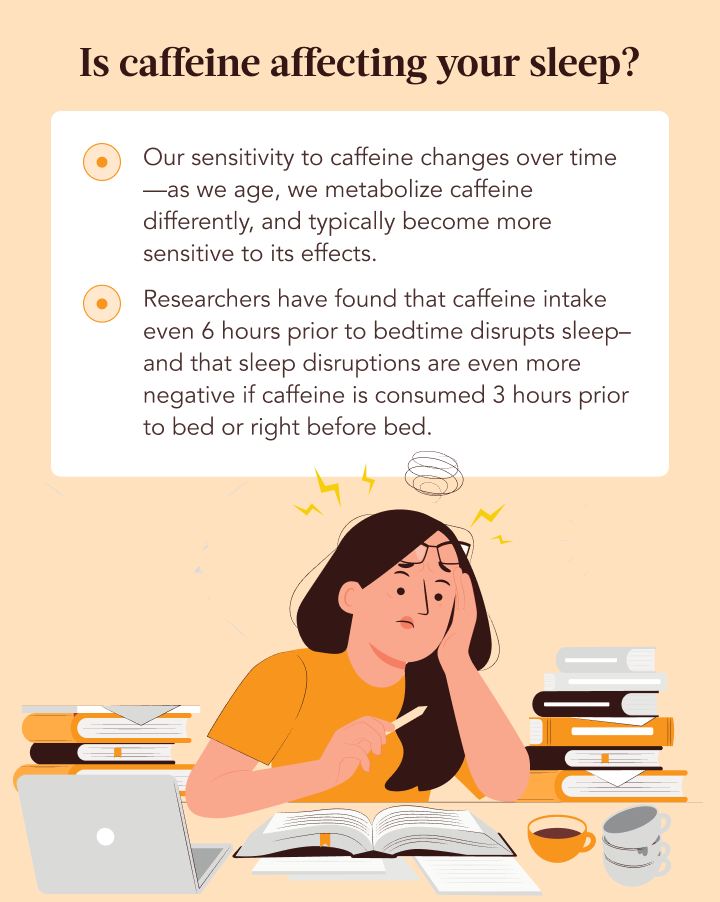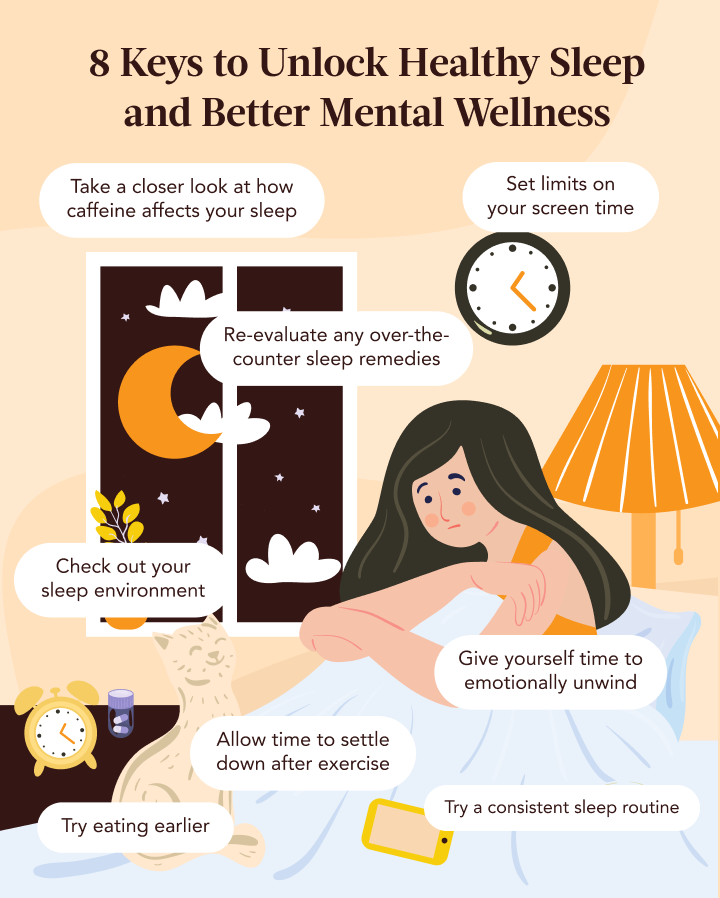8 Ways to Unlock Healthy Sleep and Better Mental Wellness

When you’re not getting quality sleep, it’s hard to function at your best. Sleep issues have a profound effect on our bodies and minds. In fact, researchers have found that sleep difficulties are not only linked to many mental health conditions, but also predict mental health issues.
As an example, sleep issues are both a risk factor for depression, and a core symptom of depression. Sleep disorders are also linked to anxiety, OCD, social phobia, and other mental health conditions. If you’ve been experiencing mental wellness issues, improving your sleep is an important aspect of recovering your well-being.

While insomnia might come to mind as the most well-known sleep issue, there are many other forms. For example, you might be sleeping too much, not sleeping enough, waking up too early, waking up too frequently, having difficulty getting to sleep, or experiencing poor quality sleep.
It may seem difficult to change your sleep patterns, but there’s a lot you can do. Below, we dig into 8 key factors that will help you identify issues you may be experiencing, and improve the quality of your sleep.
1 Take a closer look at how caffeine affects your sleep
You might be more affected by caffeine than you realize. Caffeine can disrupt our sleep cycle, so it’s important to understand how your caffeine intake is affecting you. Genetic factors make us more or less sensitive to caffeine, and our sensitivity also changes over time—as we age, we metabolize caffeine differently, and typically become more sensitive to its effects.
As a general rule of thumb, the half-life for a cup of coffee or energy drink is 4-6 hours. Meaning, after 4-6 hours half of the caffeine has been metabolized, but the remainder is still active and could be affecting your sleep. Researchers have found that caffeine intake even 6 hours prior to bedtime disrupts sleep–and that sleep disruptions are even more negative if caffeine is consumed 3 hours prior to bed or right before bed. If you don’t want to give up caffeine, it can be helpful to limit your intake to the morning only, or to experiment with reducing the amount, and see how it affects your sleep.

2 Give yourself time to emotionally unwind
You might not realize it, but your emotional state can affect how ready you are to get a good night’s sleep. Emotionally charged interactions, like an argument or a stressful phone call, can make it harder to fall asleep.
Similarly, doom-scrolling, or getting stuck in a loop of reading negative news articles, can be stressful and provoke anxiety, which in turn impacts sleep. Give yourself time at the end of your day to decompress and relax before bedtime.
3 Set limits on your screen time
It’s easy to keep using screens right up until bedtime, but it may be impacting your sleep. Greater screen time is associated with poor sleep, and may have a negative impact. Factors like watching TV in your bedroom, using a phone, or using a laptop before bedtime could be disrupting your sleep patterns. You may want to set limits on your screen use, turn off notifications early, and give yourself plenty of downtime to get ready for sleep.
4 Allow time to settle down after exercise
Exercise is helpful for restful sleep, but timing your exercise is also important. You’ll want to plan your workout to be early enough in the day—at least 3 hours before bedtime—so that you have ample time to wind down.
5 Try eating earlier
Some people find that eating late in the day or close to bedtime affects their sleep. Eating late may worsen or cause heartburn and/or digestive issues. Once again, you’ll want to experiment with what works for your body.
6 Check out your sleep environment
Your environment has a significant impact on your sleep, so it’s helpful to take a look at your surroundings and see how supportive they are for your rest. A dark, cool, and quiet room may promote better quality sleep. It’s also helpful to check your pillow and bedding—if you’re waking up feeling sore and ill-rested, it could be related to poor sleep posture.
7 Re-evaluate any over-the-counter sleep remedies
Just because medications and supplements are sold over the counter, doesn’t mean they don’t have side effects. Substances like melatonin can be effective in some circumstances, but can also be overused and may have side effects.
Others, such as the PM version of common medications, are not intended for regular use and can have adverse effects. If you depend on over-the-counter sleep remedies, it could be time to discuss your sleep needs with a health care provider.
8 Try a consistent sleep routine
A consistent sleep routine can be a helpful tool to relax and prepare for healthy sleep. You might try a series of small actions, like a warm shower, a glass of herbal tea, lighting a lavender candle for 15 minutes, or gentle activities like progressive relaxation. As you find relaxing activities that feel right for you, assemble them into a short routine that you can consistently practice.
To sum up, there are many ways to improve your sleep. Some of the changes suggested above—such as avoiding caffeine, limiting screen time, and giving yourself time to unwind—can have an immediately helpful effect.
Other practices are like a more gradual process of training. It takes time for your body to learn to respond to a consistent sleep routine. By gradually practicing your routine over the course of a month or more, your body will begin to associate relaxing practices with the message that it’s time to wind down and go to sleep.

How Frankly can help
Sleep issues can be complicated, and the large amount of variables are confusing to navigate. As a part of Frankly’s mental wellness coaching membership, your Care Guide will help you do a thorough sleep inventory. By doing a deep dive with an experienced wellness coach, you can uncover factors you might not have considered, and get personalized solutions that fit your unique needs.
Healthy sleep makes it easier to handle the stress of daily life and improves your mental health. A good night’s rest provides you with the energy you need to meet your day, keep your focus strong, and jump into your best life.

Comments ()